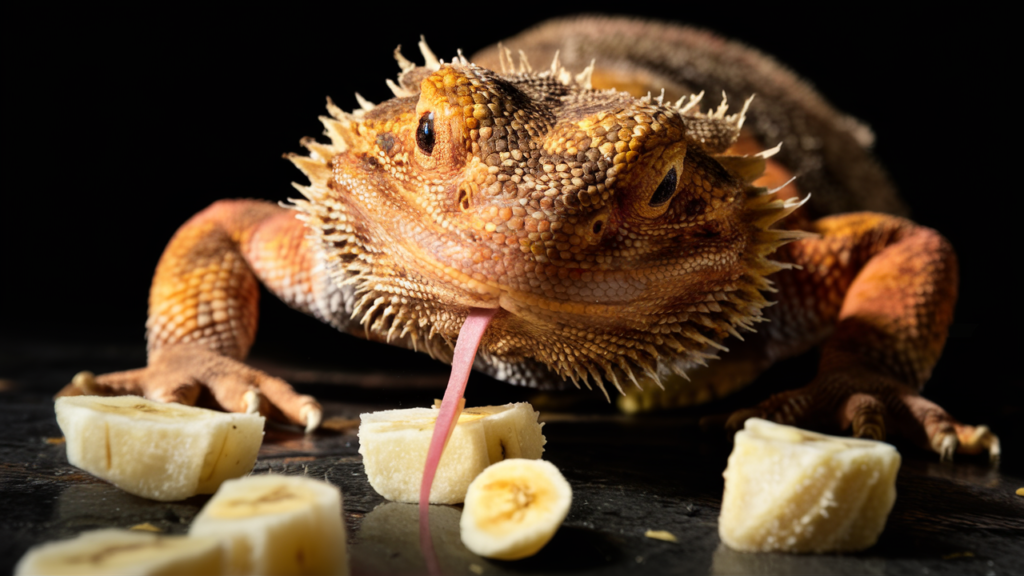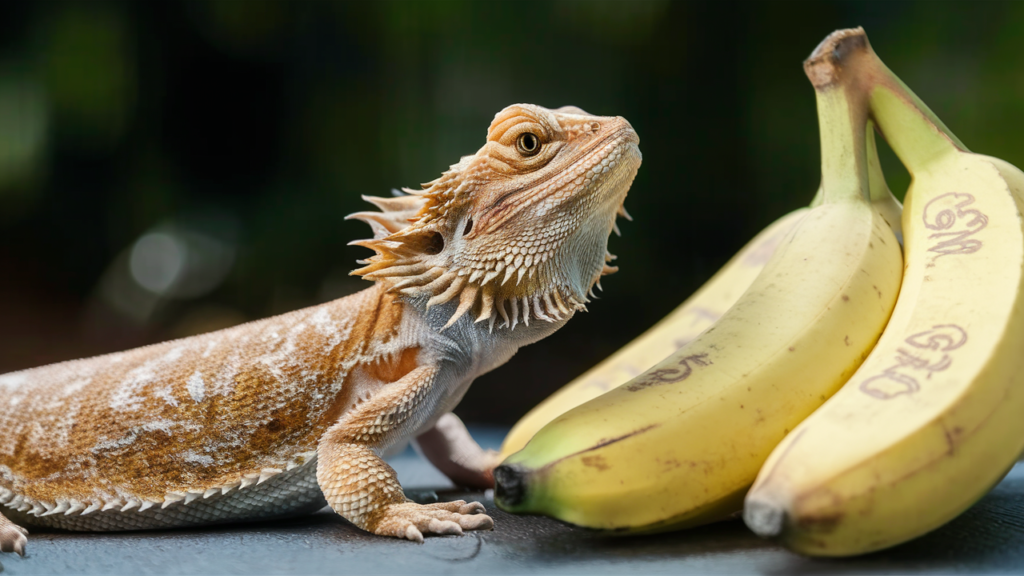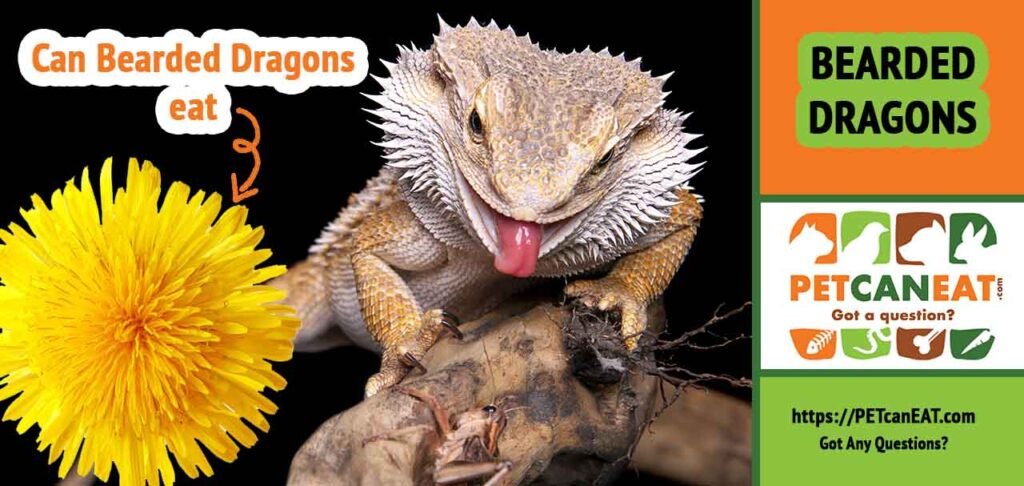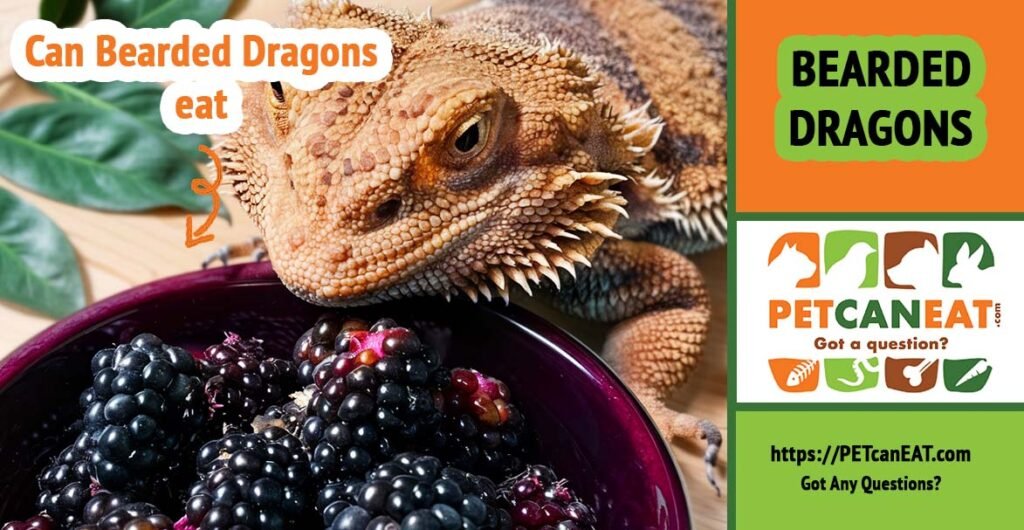Bananas are a popular fruit worldwide, known for their sweet taste and nutritional benefits, including high levels of potassium, dietary fiber, vitamin C, and vitamin B6. However, when considering the nutritional needs of bearded dragons, pet owners often question whether bananas are a suitable treat. Let’s dive into it, can bearded dragons eat bananas? This article examines the potential benefits and drawbacks of including bananas in a bearded dragon’s diet.
Nutritional Overview
Bananas offer a range of nutrients that can benefit bearded dragons in small amounts. They are particularly noted for their high potassium content, which is essential for muscle function and heart health. Bananas also provide dietary fiber, which aids in digestion, and vitamins C and B6, which support immune health and metabolic function. However, their high sugar content and relatively high phosphorus-to-calcium ratio are important considerations for bearded dragon owners.
Can Bearded Dragons Eat Bananas?
Bearded dragons can eat bananas, but only in moderation due to their sugar content and phosphorus levels. Bananas should be considered an occasional treat rather than a staple of their diet, ideally offered once a month or less frequently. This ensures that the benefits can be gained without risking health issues associated with overconsumption.
Benefits of Bananas for Bearded Dragons
- Potassium: Supports heart health and proper muscle function.
- Vitamin C: Aids in immune system support and tissue repair.
- Vitamin B6: Important for protein metabolism and red blood cell production.
- Dietary Fiber: Helps maintain healthy digestion.
Incorporating bananas into your bearded dragon’s diet occasionally can offer these nutritional benefits, enhancing their overall health and well-being.
Risks and Considerations
- Sugar Content: High sugar can lead to obesity and dental issues in bearded dragons if consumed frequently.
- Phosphorus-to-Calcium Ratio: Bananas have more phosphorus than calcium, which can lead to metabolic bone disease if calcium intake is not properly balanced.
- Pesticides: Choose organic bananas or thoroughly wash them to reduce exposure to harmful chemicals.

How to Safely Prepare Bananas for Your Bearded Dragon
- Select a ripe, organic banana to minimize pesticide exposure.
- Wash the banana thoroughly, even if you plan to peel it, to remove any surface contaminants.
- Peel the banana and cut it into small, manageable pieces that your bearded dragon can easily consume.
- Offer a small piece of banana as an occasional treat, ensuring it is not a regular part of their diet.
Alternatives to Bananas
To provide variety in your bearded dragon’s diet while avoiding the risks associated with bananas, consider these alternatives:
- Papaya: Offers essential nutrients with a lower sugar content than bananas.
- Berries: Berries like strawberries or blueberries are high in antioxidants and low in sugar.
- Squash: Provides vitamins and minerals with a more favorable calcium-to-phosphorus ratio.
These alternatives can provide nutritional variety and health benefits without the drawbacks of high sugar and imbalanced minerals.
FAQs
Q: How often can I feed my bearded dragon bananas?
A: Bananas should be fed sparingly, no more than once a month, due to their sugar content and phosphorus levels.
Q: Can bearded dragons eat banana peels?
A: While banana peels are not toxic, they are difficult for bearded dragons to digest and may contain pesticides, so it’s best to avoid feeding them.
Conclusion
Bananas can be a sweet, nutritious treat for bearded dragons when offered in moderation. Their nutritional benefits, including potassium, vitamins, and fiber, can positively affect a bearded dragon’s health. However, due to their sugar content and phosphorus-to-calcium ratio, bananas should be given infrequently and in small amounts as part of a balanced diet. Pet owners can enjoy offering this treat without compromising their bearded dragon’s overall health and well-being.






